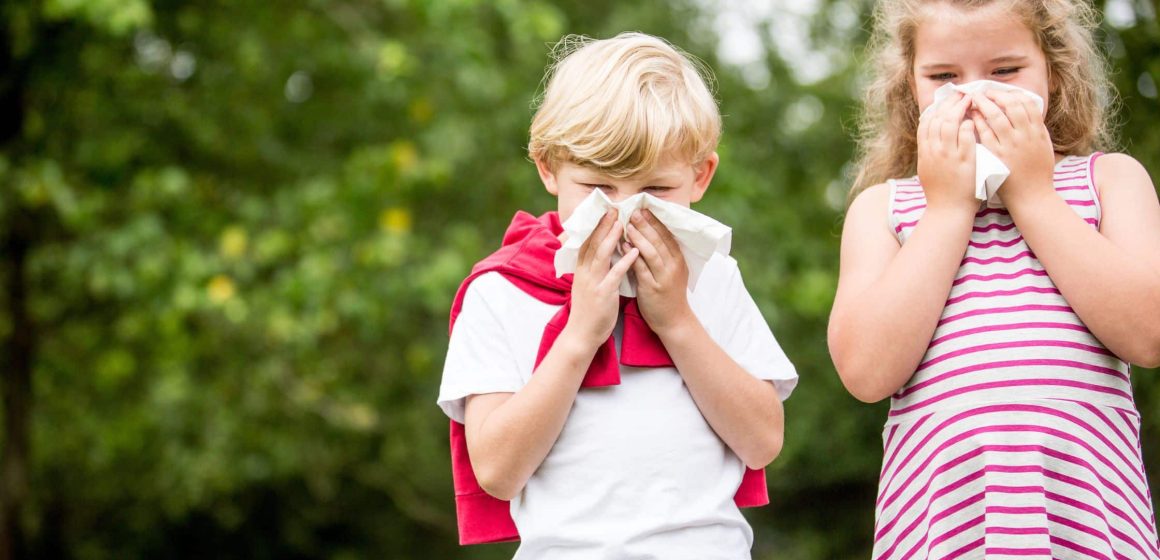Spring Allergies in Buffalo: Prevention and Management
Spring in Buffalo brings warmer weather and blooming flowers, but it also marks the beginning of allergy season. For many children, spring allergies can cause discomfort and disrupt their daily activities. Understanding how to prevent and manage these seasonal allergies can help your child enjoy the beauty of spring without the misery of allergy symptoms. Here’s a guide to helping your child cope with spring allergies in Buffalo.
Understanding Spring Allergies
Spring allergies, also known as hay fever or allergic rhinitis, are caused by the immune system’s overreaction to airborne pollen from trees, grasses, and weeds. When your child inhales pollen, their body may mistakenly identify it as a harmful substance, triggering the release of histamines. This reaction leads to the familiar symptoms of seasonal allergies.
Common Symptoms of Spring Allergies:
- Sneezing
- Runny or stuffy nose
- Itchy eyes, nose, or throat
- Watery eyes
- Coughing
- Fatigue
According to the American Academy of Allergy, Asthma, and Immunology (AAAAI), spring allergies are common among children and can begin at any age. Early diagnosis and management are key to reducing symptoms and improving your child’s quality of life during allergy season.
Prevention Tips for Spring Allergies
- Monitor Pollen Counts: Keep an eye on daily pollen counts in Buffalo by checking local weather reports or using allergy apps. On days when pollen levels are high, consider keeping your child indoors, especially during peak pollen times, usually early morning and evening.
- Keep Windows Closed: To prevent pollen from entering your home, keep windows and doors closed during allergy season. Use air conditioning to cool your home instead of opening windows. Installing a HEPA (High-Efficiency Particulate Air) filter can also help reduce pollen and other allergens in your home.
- Bathe and Change Clothes After Outdoor Play: After your child spends time outdoors, have them bathe and change into clean clothes to remove any pollen that may have settled on their skin and clothing. This can help reduce the spread of pollen inside your home.
- Use Saline Nasal Rinses: Saline nasal rinses can help flush out pollen and other irritants from your child’s nasal passages. These rinses are available over the counter and can be used daily during allergy season to alleviate symptoms.
- Avoid Outdoor Activities During Peak Pollen Hours: Encourage your child to play indoors during peak pollen hours, typically between 5 a.m. and 10 a.m. If they must be outside, have them wear sunglasses and a hat to minimize pollen exposure.
Managing Spring Allergy Symptoms
Despite your best efforts at prevention, your child may still experience allergy symptoms. Here are some strategies for managing those symptoms:
- Over-the-Counter Antihistamines: Antihistamines can help reduce sneezing, itching, and runny nose by blocking the effects of histamines. Choose a non-drowsy formula appropriate for your child’s age. Always consult your pediatrician before starting any medication.
- Decongestants: If your child is experiencing nasal congestion, a decongestant can provide relief by narrowing blood vessels in the nasal passages, reducing swelling, and improving airflow. However, decongestants should only be used for short periods and under the guidance of a healthcare provider.
- Nasal Corticosteroids: These are considered the most effective treatment for reducing inflammation in the nasal passages and alleviating allergy symptoms. Nasal corticosteroids are available by prescription and are safe for children when used as directed by a doctor.
- Eye Drops: If your child’s allergies cause itchy, watery eyes, antihistamine eye drops can provide relief. Over-the-counter eye drops are available, but it’s best to consult your child’s pediatrician for recommendations.
- Immunotherapy (Allergy Shots): For children with severe allergies, immunotherapy may be an option. This treatment involves regular injections of small amounts of allergens to gradually desensitize the immune system. Consult an allergist to determine if this is a suitable option for your child.
When to See a Doctor
If your child’s allergy symptoms persist despite preventive measures and over-the-counter treatments, it may be time to consult a healthcare provider. Your child’s pediatrician or an allergist can perform tests to identify specific allergens and recommend a tailored treatment plan.
Seek medical attention if your child experiences any of the following:
- Difficulty breathing
- Severe or worsening symptoms
- Signs of an allergic reaction, such as hives or swelling of the face and throat
Trusted Resources for Parents
For more information on managing spring allergies in children, visit the American Academy of Allergy, Asthma, and Immunology (AAAAI) and the Centers for Disease Control and Prevention (CDC). These organizations provide expert advice on allergy prevention and treatment options to help your child stay healthy and comfortable during allergy season.
Conclusion
Spring allergies can be challenging, but with the right prevention and management strategies, you can help your child enjoy the season without the discomfort of allergy symptoms. By staying informed, taking preventive measures, and seeking appropriate treatment, you can ensure your child’s well-being throughout the spring months in Buffalo. Start implementing these tips today, and make this allergy season a little easier for your child.


















